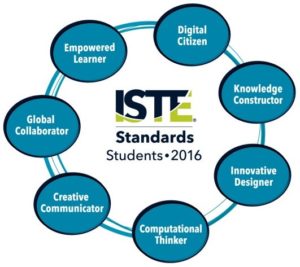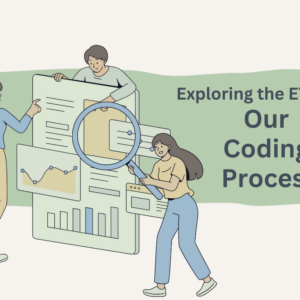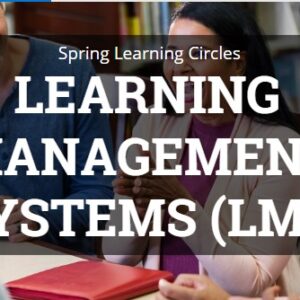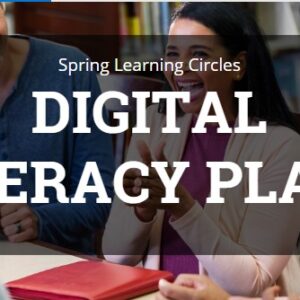By Jen Vanek and Brandon Olszewski
As retail technology evolves to incorporate new trends such as online shopping, self-checkout and personal data, one cannot help but notice the changing nature of work. Rather than mechanically checking out customers one at a time, retail associates are now free to shift between kiosks, helping customers with questions about products, building client relationships, and picking online orders. This shift in responsibilities reveals new workplace challenges and tasks that require workers to interact with technology in new ways.
Interacting with technology means frontline retail staff now require “technology skills”, but many people still think of these skills as something to be taught on their own. We believe that this method is fundamentally flawed, limited because it situates development of a discrete technology skill as the end goal even though these skills constantly evolve and require self-driven, lifelong learning.
For 20 years, the International Society for Technology in Education (ISTE) — a member of Hope Street Group’s Retail Opportunity Network (RON) — has supported the ISTE Standards, sets of standards that describe the qualities to which digital age learners, educators, and leaders should aspire. Like technology, these standards have evolved over the years. Beginning in 1998, these skills promoted a very basic concept of digital literacy (e.g., lots of computer skill instruction).
When the third version of the ISTE Standards for Students were released in 2016, they promoted a very different model of a digital age learner: one who is empowered to steer her own learning, one who attends to the ethical implications of learning in a global world, and one who is fearless at leveraging the power of computing to solve problems in smarter ways. Likewise, the ISTE Standards for Educators have evolved to reflect the changing need for teachers to be facilitators and mentors of learning and not knowledge storehouses waiting to transfer their data to eager students. Both of these sets of standards reflect how the skills we need to thrive change along with technology and society.
To some extent the shift represented in the new student standards is mirrored in conceptualization of adult learning — a shift from andragogy to heutagogy. Andragogy, Malcolm Knowles’ theory of motivation in adult learning, recognizes that adult learners need to know why they are learning and that what they are learning is relevant and builds on prior knowledge. Andragogy suggests that adults are engaged in learning when it is framed from a problem-posing approach and is aligned to intrinsic motivation.
The field of adult education at both the US federal level and internationally has made gains in supporting the capacity of educational programming to embrace this problem solving approach through the framework, Problem Solving in Technology-Rich Environments, conceptualized by the OECD’s Program for the International Assessment of Adult Competencies (PIAAC). The Ed Tech Center @ World Education (also a member of Hope Street Group’s RON) has taken leadership in showing teachers how to incorporate this approach into their instruction. (See Using the PIAAC Framework for Problem Solving in Technology-Rich Environments to Guide Instruction: An Introduction for Adult Educators).
Learning opportunities based on this approach ascribe to an andragogical view, which yet places the teacher as instrumental in learning. However some recent efforts are aimed at supporting a more self-empowered model for learning. Heutagogy, or self-determined learning (Hase and Kenyon 2000) expands the role of human agency in learning, placing the learner as “the major agent in their own learning, which occurs as a result of personal experiences” (Hase and Kenyon 2007, p. 112). The teacher partners in this work, but does not direct every step of learning.
The heutagogical approach is a promising method for empowering frontline retail staff with the “technical skills” needed to succeed, and it has already been successfully applied at many learning levels. ISTE’s Advancing a Network of Empowered Adult Learning (ANEAL) project offers employers and staff supporting frontline service workers the opportunity to build their own capacity for leveraging technology in adult and workforce education through multiple learning access points, including a “start anywhere, go anywhere” framework, a module-based course that allows for piecemeal or big-picture learning, and podcasts exploring advances in the field.
At the postsecondary level, ThriveCast, a project of Arizona State University, offers content learning and activities to demonstrate growth. The learner drives choices about learning through self-determined learning pathways supported by peer collaboration and story sharing, learning challenges, and interaction with mentors. Finally, for adult learners with less formal education, heutagogy is represented in learning opportunities that leverage the technologies that adults use in daily life — such as smartphones — pushing them to accomplish tasks at school and work that support the development of their digital fluency.
Because of the pace of technological innovation and the change in technologies required for work, more programs supporting adult learners at all levels — and particularly those at the lower levels — should start considering how their programs map onto the current ISTE standards and allow for a heutagogical approach to learning. It’s time to empower the learner inside each of us!
Look for updates on ANEAL and other efforts in the coming months.
Jen Vanek, PhD, is the Director of Digital Learning and Research at the EdTech Center @ World Education. Through her research and direction of the Innovating Distance Education for Adult Learners (IDEAL) Consortium, she supports policy leaders, practitioners, and learners in adult basic education in the areas of digital literacy, online learning, career pathways, and English language learning.
Brandon Olszewski serves as Director of Research at the International Society for Technology in Education (ISTE). At ISTE, he is always working to support educational innovation for learners of all ages through research, project implementation, and evaluation. Follow him on Twitter @olszewski_b.
Originally posted on Medium by the Hope Street Group August 28, 2018.




